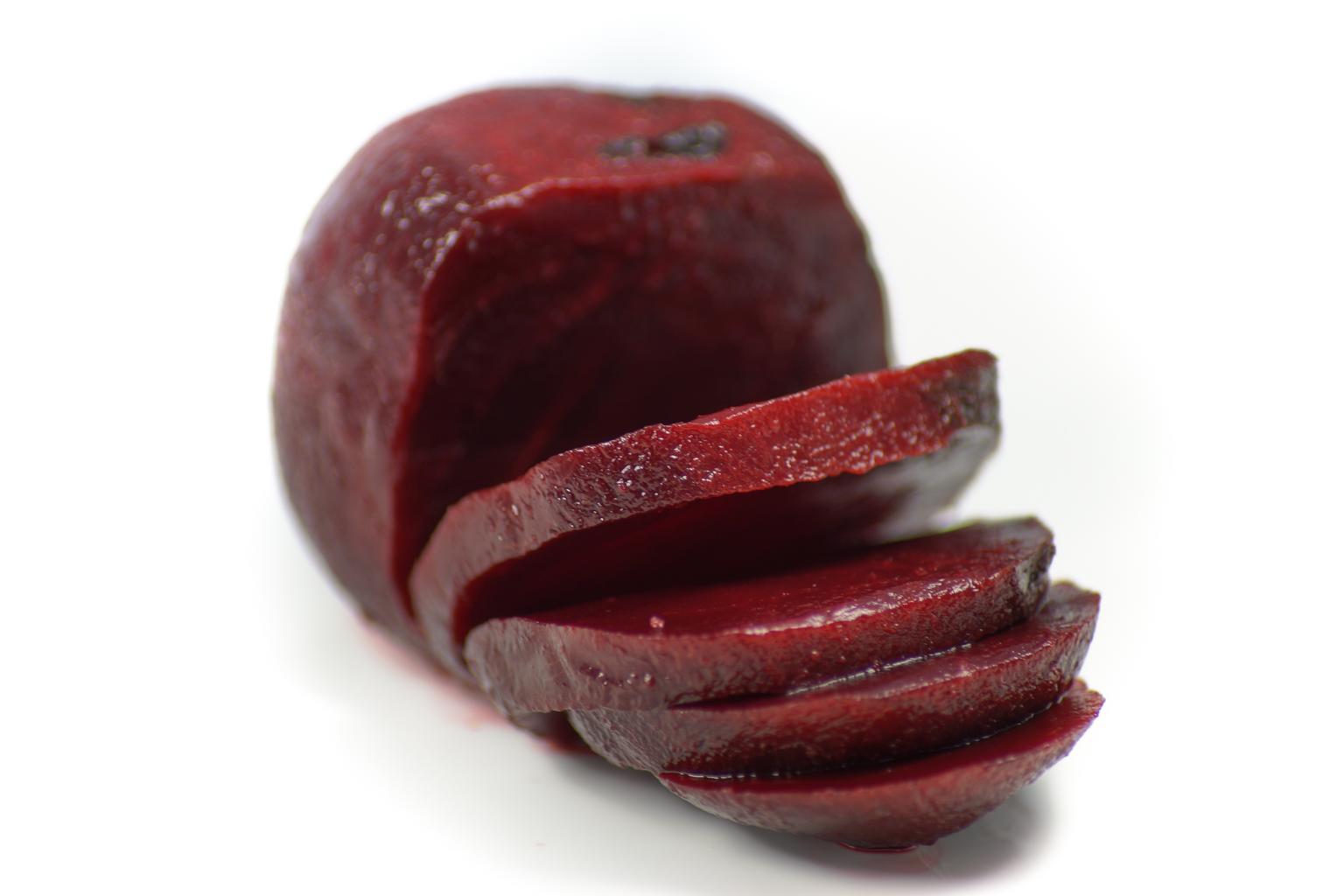Inorganic nitrates, such as those found in beetroots and leafy green vegetables have gained a reputation as having a positive effect on athletic performance, but the method behind their action is often unknown. Is this marketing hype, or is this a supplement that is actually worth you taking? We are here to help you decide.
The TL;DR Version
Yes, nitrate supplements are worth it! Nitrate supplementation reduces the oxygen cost of submaximal exercise, reducing VO2 for a given power output as well as increasing power output by 2.7% when compared to placebo over a 10mile TT.
Acute supplementation: Drink 0.5L of beetroot juice (or concentrated equivalent) 2.5 hours before your event.
Chronic supplementation: Drink 0.65L of beetroot juice every day for 6 days prior to the event.

Where can I find nitrates?
Great sources of nitrate can be found in leafy green vegetables such as lettuce, spinach, rocket, celery, cress, and beetroot. When fresh, these typically contain over 250 mg of nitrate per 100g. Beetroot juice is also widely available as well as specific ‘shots’ of concentrated beetroot juice.
Research
…beetroot juice significantly increased the mean power output during the 4km and 16.1km time trials.
Lansley et al. [1] studies the effect of nitrates on the power output on 9 trained male cyclists when completing both a 4km and a 16.1km time trial on a cycle ergometer following the acute consumption of 0.5L of beetroot juice (6.2 mmol of nitrate) using nitrate-depleted beetroot juice as a placebo. Given that nitrate supplementation reduces VO2 for the same fixed power output (less oxygen is required to produce the same power) [2], the hypothesis was that during a time trial the cyclists would be able to produce a higher power for the same VO2 and thus complete the trial in less time. Consistent with the experimental hypothesis, VO2 during the time trials was not significantly different between the groups, but beetroot juice significantly increased the mean power output during the 4km and 16.1km time trials when compared with the placebo by 2.8% in the 4km trial and 2.7% for the 16.1km trial.
Time to completion and power output were significantly improved after beetroot juice when compared with placebo supplementation…
Cermak et al. [3] also examined the influence of nitrate supplementation on cycling time trial performance. This study tested the effect of 6 days of concentrated beetroot juice ingestion (8 mmol nitrate/day) on 10-km cycle time trial performance in 12 trained male cyclists. After (supplementation on the 6th day, the subjects completed 60 min of submaximal cycling (2x30mins at 45% and 65% maximum) followed by a 10km time trial. Time to completion and power output were significantly improved after beetroot juice when compared with placebo supplementation (15.9min ± 0.3min vs. 16.1min ± 0.3min and 294W ± 12W vs. 288W ± 12W respectively). Submaximal VO2 was significantly lower (5 %) after beetroot juice than after placebo at both 45% and 65% of peak power output. Together, these studies suggest that both acute and more chronic dietary nitrate supplementation improves cycle efficiency and time trial performance, at least for events of approximately 5–30 min duration in trained but sub-elite cyclists.
Absorption
Approximately 25% of ingested inorganic nitrate is taken up by the salivary glands and concentrated in the saliva. Bacteria residing on the surface of the tongue reduce nitrate to nitrite - this is where the advice that if you are using liquids, such as beetroot juice as a source of nitrates, that you swill it round you mouth before swallowing comes from, in order to allow the bacteria on your tongue time to act. Some of the swallowed nitrite is reduced to nitric oxide (NO) in the acidic environment of the stomach, but a substantial amount of nitrite enters circulatory system as is. After ingestion, plasma nitrate concentration peaks after 1–2 h and plasma nitrite concentration after 2–3 h, arriving back at baseline values after about 24 h [4] so plan consumption accordingly prior to your race or effort. A variety of enzymes and proteins, can subsequently convert nitrite to NO in blood and other tissues [5]. This process is facilitated in conditions of low oxygen availability and low pH [6], enabling NO to be produced where it is most required. These conditions (low partial pressure oxygen and pH) exist in skeletal muscle during exercise [7]
Method Of Action
Bailey et al. [8] demonstrated that the reduction in the whole-body oxygen cost of exercise following nitrate supplementation of nitrates is tied to changes in muscle energy metabolism. The sparing of VO2 and phosphocreatine (PCr) reported by Bailey et al. indicated that nitrate supplementation maybe responsible for reducing the adenosine triphosphate (ATP) cost of muscle power production. A lower ATP cost of force production would blunt the changes in intramuscular substrates and metabolites that stimulate mitochondrial respiration [9]. This could explain the lower oxygen cost of exercise. Interestingly, the depletion of muscle PCr and the accumulation of inorganic phosphate (Pi) and adenosine diphosphate (ADP) have been linked with the process of muscle fatigue during high-intensity exercise [10]. The blunted changes in energy substrates and metabolites may therefore help explain the improved exercise tolerance observed following nitrate supplementation. An alternative explanation for the coincident reduction in steady-state VO2 and PCr is that nitrate supplementation simultaneously improves muscle oxygenation - sparing muscle PCr [11] and improves mitochondrial efficiency - thus lowering VO2.
References
- Lansley KE, Winyard PG, Bailey SJ, et al. Acute dietary nitrate supplementation improves cycling time trial performance. Med Sci Sports Exerc. 2011;43:1125–31.
- Vanhatalo A, Bailey SJ, Blackwell JR, et al. Acute and chronic effects of dietary nitrate supplementation on blood pressure and the physiological responses to moderate-intensity and incremental exercise. Am J Physiol. 2010;299:1121–31.
- Cermak NM, Gibala MJ, van Loon LJ. Nitrate supplementation’s improvement of 10-km time-trial performance in trained cyclists. Int J Sport Nutr Exerc Metab. 2012;22:64–71.
- Webb AJ, Patel N, Loukogeorgakis S, et al. Acute blood pressure lowering, vasoprotective, and antiplatelet properties of dietary nitrate via bioconversion to nitrite. Hypertension. 2008;51:784–90
- Cosby K, Partovi KS, Crawford JH, et al. Nitrite reduction to nitric oxide by deoxyhemoglobin vasodilates the human circulation. Nat Med. 2003;9:1498–505.
- Modin A, Bjo¨rne H, Herulf M, et al. Nitrite-derived nitric oxide: a possible mediator of ‘acidic-metabolic’ vasodilation. Acta Physiol Scand. 2001;171:9–16.
- Richardson RS, Noyszewski EA, Kendrick KF, et al. Myoglobin O2 desaturation during exercise. Evidence of limited O2 transport. J Clin Invest. 1995;96:1916–26.
- Bailey SJ, Fulford J, Vanhatalo A, et al. Dietary nitrate supplementation enhances muscle contractile efficiency during kneeextensor exercise in humans. J Appl Physiol. 2010;109:135–48
- Meyer RA. Linear dependence of muscle phosphocreatine kinetics on total creatine content. Am J Physiol. 1989;257: C1149–57.
- Allen DG, Lamb GD, Westerblad H. Skeletal muscle fatigue: cellular mechanisms. Physiol Rev. 2008;88:287–332.
- Wilson DF. Factors affecting the rate and energetics of mitochondrial oxidative phosphorylation. Med Sci Sports Exerc. 1994;26:37–43.






Share:
Caffeine - A Deep Dive
Fuelling For Performance